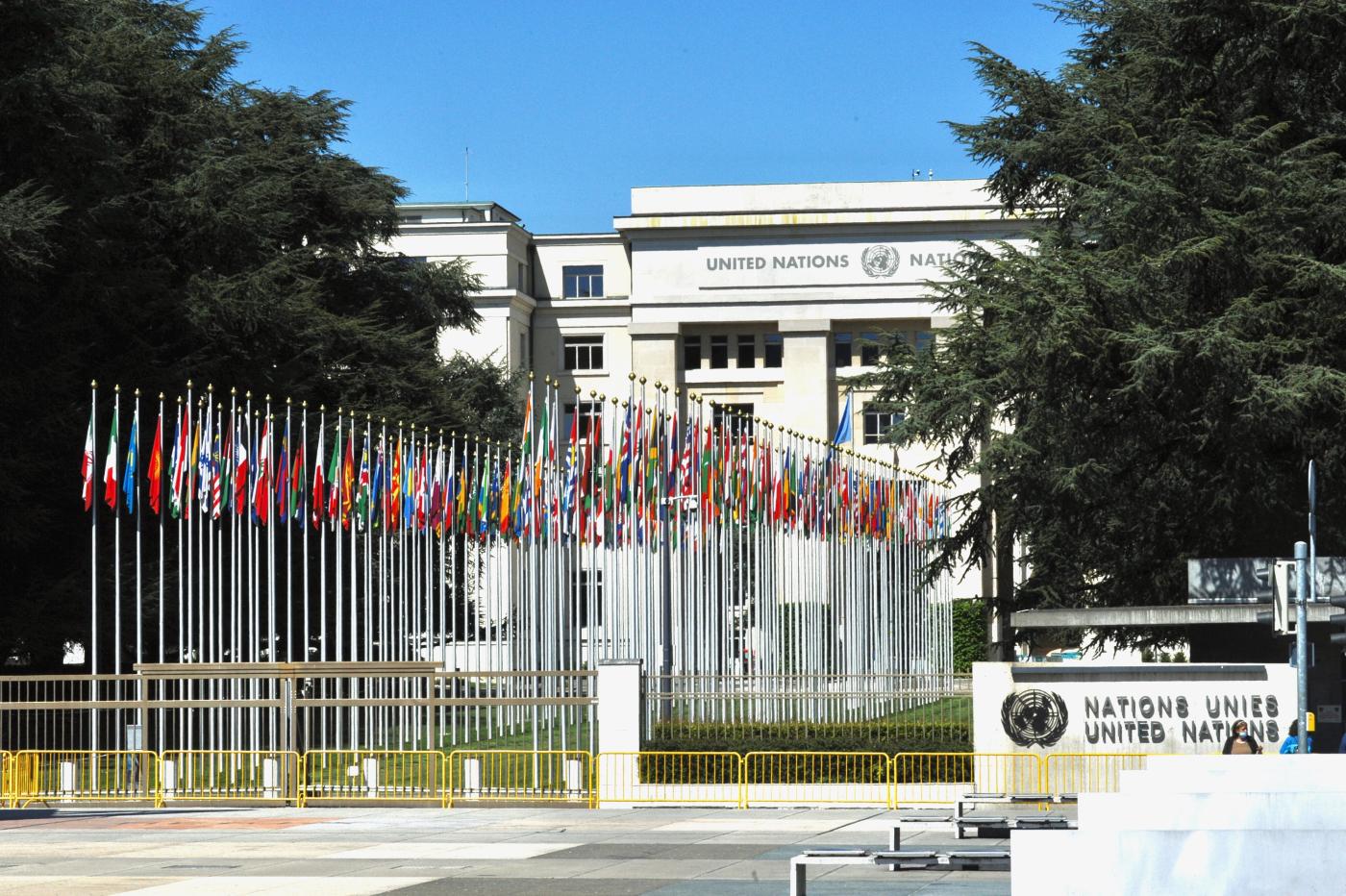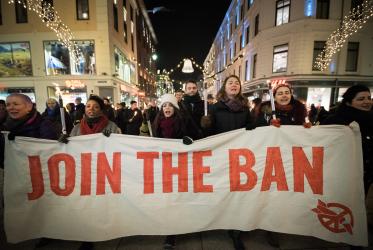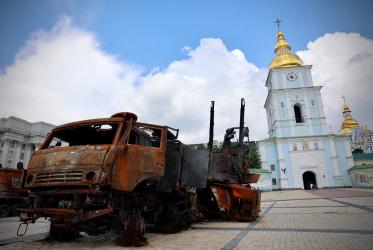Among several other priority issues, the WCC emphasized nuclear disarmament, drawing on the new normative principles introduced by the Treaty on the Prohibition of Nuclear Weapons (TPNW) for which WCC has long been a leading advocate. “Though the Russian invasion of Ukraine has brought the threat of nuclear conflagration back more prominently into the public discourse and consciousness, the threat had always persisted,” reads the text, noting that nuclear-weapon states have consistently resisted progress towards general and complete nuclear disarmament. “It is legally and ethically anomalous” the WCC observes, “that unlike chemical weapons, biological weapons, anti-personnel landmines and cluster munitions, nuclear weapons – the most indiscriminate weapons of mass destruction ever created by human beings – are not prohibited in a comprehensive and universal manner.” WCC calls for the ‘New Agenda for Peace’ to build on the TPNW in order to accelerate progress “towards the elimination of this most morally egregious category of weapons.”
The WCC text also notes that the years since the 1992 UN Agenda for Peace was published have been tragically and indelibly marked by the phenomenon of religiously-inspired extremism, violence, and conflict based on religious identity. “In situations where religious discrimination is reflected in official or practical access to citizenship rights, the risks of such violence are greatly elevated,” reads the text. “In such contexts, interfaith cooperation to prevent and confront violence, and to promote inclusion, equal citizenship, and fundamental human rights for all is of vital importance.” While religious discrimination and hatred have been key drivers of conflict, the submission stresses that religion also remains such a key source of societal resilience. WCC therefore recommends that the New Agenda for Peace recognize “the importance of engaging with faith-based and interfaith peacemakers at the national level in the construction of sustainable peace.”
While sanctions and related measures are generally considered a preferable means of restoring international peace and security than armed intervention, WCC’s submission observes that sanctions “often produce humanitarian suffering and other consequences at least as severe, and generally more widespread, than the use of armed force.” Moreover, such measures are generally unsuccessful in achieving their stated aims. The WCC therefore proposes that a thorough reconsideration of the utility of sanctions, and their negative impacts, should be undertaken.
The submission also highlights the importance of mental health, psychosocial support, and trauma healing in order to avoid repetition and inter-generational transmission of cycles of violence and instability. Recommending engagement with and capacity-building for religious actors, the WCC notes that “[e]specially in contexts where professional mental health services are inadequate to the scale of the need, local religious leaders and faith communities are often by default the primary providers – or potential providers – of psycho-social care and support.”
The WCC input also takes a stance on the nexus between resource extractive activities and conflict. “We believe that the effective management of a society’s natural resources – not least ensuring equitable sharing of benefits and just allocation of burdens – must be a priority not only for the sustainable development agenda but also for the New Agenda of Peace,” the text reads. “In this regard, policies that promote equitable wealth distribution, public investment and dignified employment must be given due importance.”
Racial injustice is often an underlying driver of conflict and instability. “The persistence of racism, xenophobia and related discrimination remains a major threat to peace in many societies, the salience of which is increasing in some contexts,” reads the WCC submission. “Accordingly, the New Agenda for Peace must help raise the profile and resources allocated to the UN racial justice mechanisms and amplify calls for inclusive and sustainable communities, free from such discrimination.”
World Council of Churches’ submission for UN New Agenda for Peace
Learn more about WCC's Commission of the Churches on International Affairs








